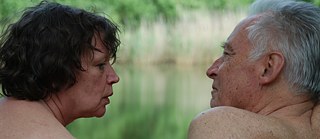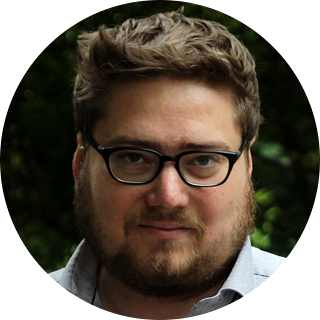Cloud 9
Age, Love, Daily Life

What happens when a man’s wife falls in love with somebody else at the age of almost 70? Andreas Dresen’s award-winning movie gives an immediate and intense account of the former East Germany and of the acute emotional present.
By Frédéric Jaeger
Old people also have bodies. They sweat, they exert themselves, they touch one another. The tenderness with which Andreas Dresen portrays a woman in her late sixties and two men in their seventies in Cloud 9 is extremely striking. The director explores the bodies of his characters without embarrassment, follows them at close quarters and films them as they go about their daily lives, undressing, washing, sleeping, having sex. The movie won the Prix Coup de Coeur at Cannes – the favorite that won the jury’s heart, in other words. This is consistent with the fact that this film, despite all of the director’s trademark interest in painstakingly presenting a particular milieu, unmistakably has a love story at its core. Old people can also fall in love. Cloud 9 takes this seriously.
Inge is 69 but it is not easy to tell, as she seems more like a young girl. Played by Ursula Werner, she comes across as impish, inquisitive and impulsive. A seamstress by trade, Inge strides vigorously through the city but appears gentle and shy when she finds herself in the living room of Karl (Horst Westphal), her 76-year-old client whose pants she has just shortened. The fact that she has been married for over 30 years and shares a peaceful life with Werner Horst Rehberg), her not much younger husband, seems very distant when she begins flirting with Karl. Without much further ado Inge and Karl sleep together, spontaneously on the rug.
Andreas Dresen is probably the best-known director today who began a career in East Germany that he was able to continue in West Germany after reunification. This siting in the east plays a noticeable but discrete role in his films. In any case the simplicity with which he presents the aging couple’s entire panorama of experience could hardly be surpassed. They spend a lot of time at home, the sound of coffee dripping through the filter machine, while Werner sits in his small den listening to records featuring the sounds of locomotives. Inge’s daughter Petra has a summer house with a garden – a dacha – of the kind people typically had in the former East Germany. Dresen need explain nothing of this, as these places are simply the normal environment for this affectionate and modest patchwork family.
Everything is in the right place in Cloud 9. It is clear from his attention to detail that Andreas Dresen has extensive experience of documentary work. Nothing is solely a means to an end, every image has its feet firmly on factual ground and exudes something of both the past and the present. By filming the characters and objects very closely for much of the time, cameraman Michael Hammon emphasizes the extent to which everything is just a small excerpt of real life. In one scene, Werner sits down at his desk, naked, rolls a cigarette with a mechanical rolling machine, and then climbs into the bathtub. Inge joins him and washes him with soap from behind. It is such moments – somewhere between ritual, everyday life and intimate togetherness – that make Cloud 9 far more than just a love story between old people.
Andreas Dresen has made a movie that stands out, even within his own body of work. New love that is being tested out by a couple is in itself a fairly ordinary subject. However, the drama that it unfolds feels immediate to a degree that is rarely achieved. All the different factors come together to make this happen: an intensely focused narrative style, a clear situatedness at concrete places, and emotional acting. The intensity also comes about as a result of the movie’s incidental approach. It portrays the love and bodies of septuagenarians in a way that is incidental and almost casual – something Cloud 9 first has to stress because it is not something that is often to be found in contemporary visual imagery.
author
